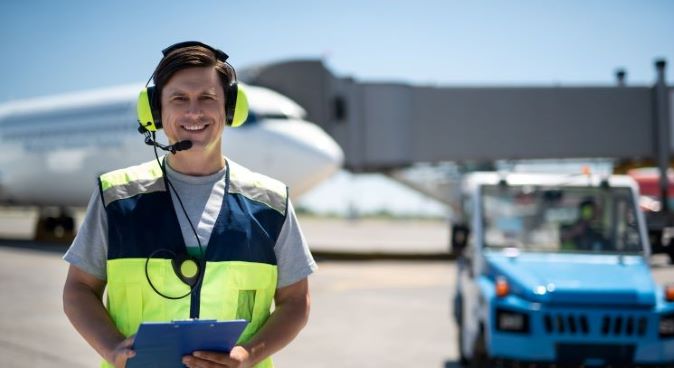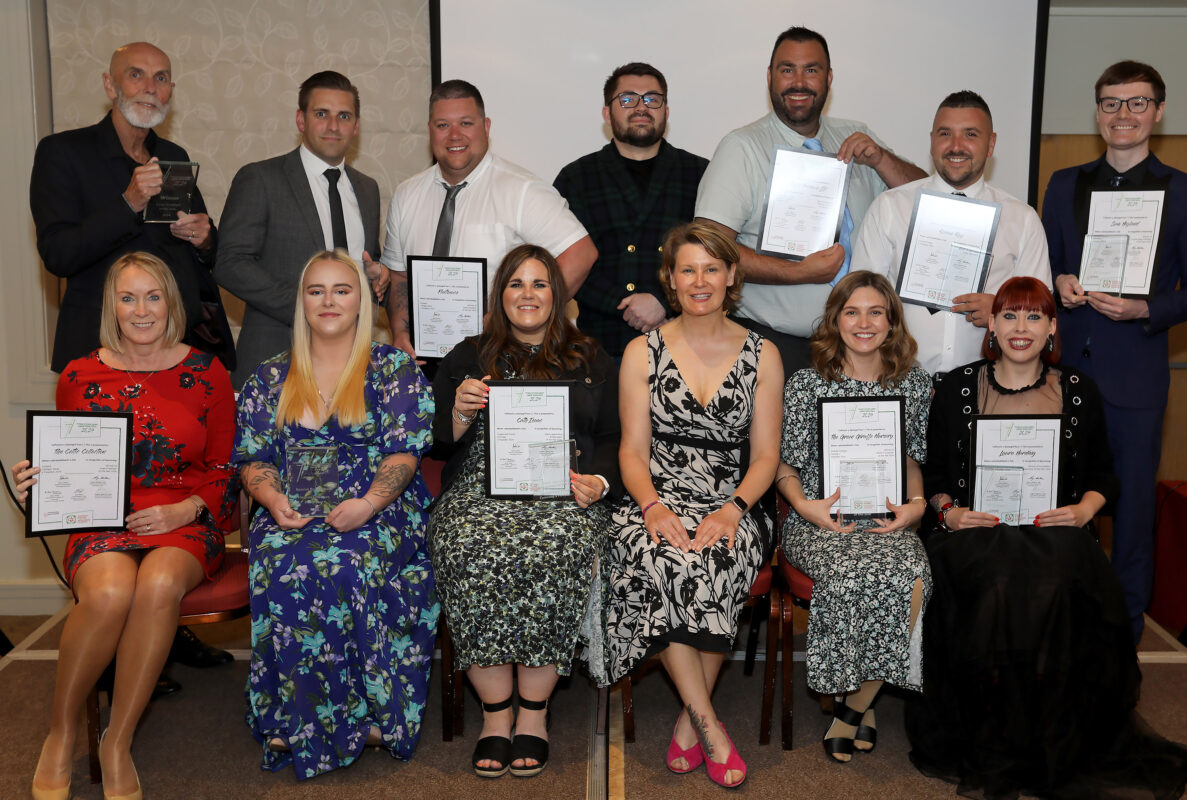Apprenticeships set to deliver the future skills needed in aviation

The aviation industry has faced immense challenges over the last two years. With flights grounded, borders closed and travel restrictions in place, the UK alone saw arrivals between April 2020 to October 2021, on average, around 85% lower than levels seen prior to the Covid-19 outbreak.
Whilst this left the industry paying a high price with a significant number of job losses, 2022 sees hopes rising for airline travel to bounce back as restrictions ease, consumer confidence builds and bookings increase.
Attracting fresh talent
As the industry rebuilds, attracting fresh talent is critical. Employers will be working hard to combat the impact of the pandemic on the perception of careers in aviation and to promote the fast-paced and diverse opportunities it has to offer.
“We are an industry that has been hit significantly by the pandemic and this has made people think twice about joining the industry. However, we are already seeing the pent-up demand for holidaymakers who desperately want to make up for the holidays they missed due to the pandemic. People will always want to travel and yes, travel is changing but that’s exciting and we will be part of that change.”
– Rebecca Wakelin, Early Talent & Apprenticeship Manager, TUI.
Those with experience in the industry value the challenging, yet exciting and wide-ranging careers that are available:
“Aviation is a unique and diverse industry where no two days are the same. The skills you develop are transferrable and due to the nature of the environment it becomes a passion rather than a job.”
– Kelly Jones, Passenger and Customer Services Manager, Cornwall Airport Newquay.
“The industry offers such a broad range of opportunities, far wider than the traditional operational roles you naturally associate to aviation. At Jet2 we have our head office in Leeds, offering roles in HR, IT, marketing, finance, legal, customer service, product, sales and planning, to name a few.”
– Katie Rankin, Early Careers & Future Talent Specialist at Jet2.com
Rebuilding with apprenticeships
Apprenticeships have long been valued by employers in the industry. Since the introduction of the new standards in 2015, over 2000 apprentices have joined the industry through aviation standards for ground handling and cabin crew – that’s before even looking at the number of apprentices in supporting head office roles, engineering or customer service.
“Apprenticeships provide a cost-effective way to improve social mobility, potentially providing opportunities for skilled longer-term employment for those who perhaps are not provided with an abundant amount of opportunity. They can also be used to upskill existing talent in aviation, ensuring aviation bridges the skills gap required for the future.”
– Sam Screpis, Talent Partner, easyJet
Creating a talent pipeline within aviation has never been more important. Apprenticeships offer an alternative route into the aviation industry and help to attract a more diverse range of talent.
“Apprenticeships offer businesses the chance to upskill and develop their existing talent, but also attract the best possible talent they can by offering sustainable career paths with real progression. Aviation has been rocked by Covid-19 and to combat that apprenticeships offer businesses the real chance to rebuild. An apprenticeship can help drive higher productivity, greater engagement and higher retention levels.”
– Rebecca Kable, Head of HR Operations – U.K. & Ireland, Menzies Aviation.
Tangible business benefits
Apprenticeships are an attractive business strategy. Many businesses across the aviation industry invest in them to develop the future workforce and talent.
“We have several cases whereby an apprentice has climbed the ranks into senior positions showing their talent and what they have learned through their scheme.”
– Sam Salter, Leadership at Collins Aerospace
Heathrow Airport believes that apprenticeships offer relevant and continuous development opportunities for colleagues which helps to futureproof the business:
Our apprentices bring a fresh perspective, greater confidence, are more engaged and better skilled. The programmes we offer provide opportunities to succession plan and support colleagues to gain the relevant skills and qualifications.”
– Poorvi Patel, Head of Education, Employment and Skills at Heathrow Airport.
Ricky Leaves, Apprenticeship Manager at British Airways highlights similar benefits:
“The apprentices who join British Airways tend to stay with us throughout their careers and go on to achieve great things. They remain engaged and committed to the organisation, while continuing to develop as they journey through their career. Time and time again so many of our apprentices have delivered innovative and creative ideas for our organisation, which make them hugely valuable to us.“
– Ricky Leaves, Apprenticeship Manager, British Airways
Future-ready skills
In 2021 two new apprenticeship standards were approved for aviation, offering the sector the chance to open new career opportunities, and for employers to offering meaningful jobs.
The aviation ground operative apprenticeship, which is critical to supporting new talent into key front line operational roles across the sector, has been replaced to create two standalone apprenticeships:
These provide direct entry into the sector and are popular roles that a large percentage of people seeking a career in aviation start in. The standards offer vital operational knowledge and skills that aid future progression.
As part of the work to develop these new standards, all pathways at level 2 and 3 were reviewed including the aviation ground specialist at level 3, in order to give more clarity in career path succession and truly reflect the movement of people from front line agent/operative roles into more autonomous occupations. As a result, the removal of the aviation ground specialist at level 3 is being proposed and replaced with a number of standalone standards that reflect the occupations within the sector:
- Aviation movement specialist (level 3) – available for delivery)
- Aviation support scheduler (transport scheduler) (level 3) – in development
- Aviation flight ops coordinator (level 3) – in development
- Border security specialist (level 3) – in development
National Apprenticeship Week 2022
As we celebrate National Apprenticeship Week 2022, employers within aviation are emerging from the pandemic and looking ahead with confidence. As businesses build back, talent development is more important than ever, and its clear that the industry is seeing apprenticeships as an increasingly valuable tool to grow highly motivated and skilled teams.
“Apprenticeships offer us a huge opportunity in building future careers in aviation through developing core, specialist, and leadership capabilities – both operationally and in the diverse range of careers that help deliver great results behind the scenes in areas such as finance, digital and in our people teams. Unlocking the potential of future, new and existing colleagues, the creation of amazingly different career journeys, innovative training and development, agile working, and adopting a digital first mindset are key to ensuring companies across our sector start to thrive again. Never has there been a better time to put the spotlight on apprenticeships and develop these skills in our industry.”
– Suzi George, Manager Apprenticeships & Professional Skills, Virgin Atlantic











Responses